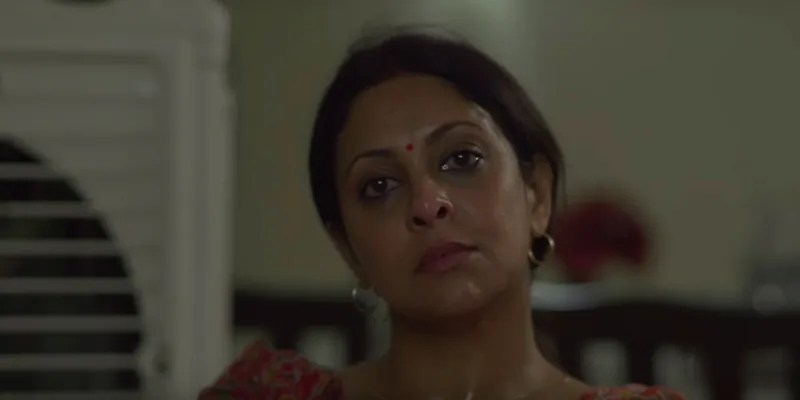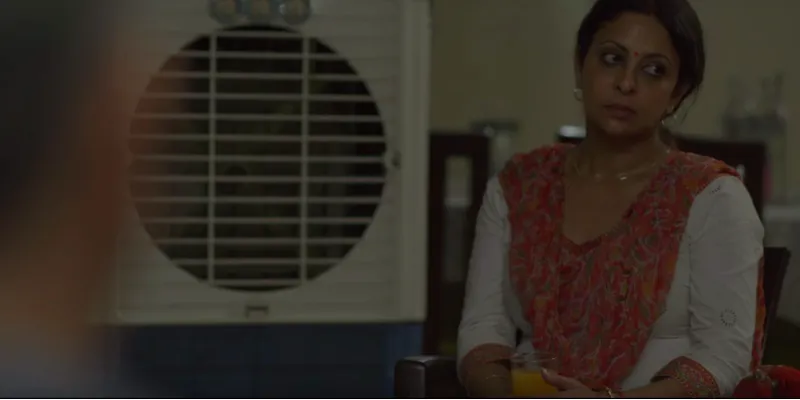Too awkward to discuss equality with your family? Take a gulp of this ‘Juice’
The short film Juice questions everyday sexism and misogyny with a brilliant narrative.
The reason feminism is threatening to people is because the personal is political, and the political is personal.
What this statement means, is that feminism is not an ideology that one just practises outdoors, but is a fiery passion that must be with one at all times - even at home.
Taking workplace harassers to task, demanding to be seen and heard in public spaces or rallying for the right to pray at your local place of worship, is as important as carrying this spirit of questioning and confrontation all the way to your home to challenge the way men and women interact with each other even within a family.
But, most people run out of fuel right before this last stop.
Seeking to be treated equally should ideally have been a more comfortable conversation to have with family than with strangers, but it somehow feels more awkward and uncomfortable to address.
Neeraj Ghaywan, though his short film Juice, shows you another way to demand respect.
This method does not even need conversation; it is in fact, centered around silence - a kind so eerie, it pierces through the noise. It does not require a grand gesture - all the protagonist does, is drag a chair to the living room, sit down with a glass of juice, right in front of the cooler, at a gathering of some couples in her home.
Something this simple will perhaps go down in the history of their family as the revolutionary incident that changed everything.
Juice depicts the build-up to this inconspicuous rebellion - which is as follows.
The film is interspersed with a number of scenes that move from the living room to the kitchen. It seems to be a gathering of some men, who are catching up on their jobs and are making generic conversation that turns sexist at times.
Manju Singh, the lady of the house, played by Shefali Shah, is slaving in the kitchen and serving the guests, while simultaneously performing other household chores.
There are intermittent requests from the husband in the living room, and Manju clearly, is hassled.

Manju Singh’s husband proudly proclaims to a friend how he “taught” (possibly mansplained) how something is to be done at work, to a perhaps newly appointed female boss, “just like a child”. She later asks him to compile an e-mail with all the pointers, which is an annoyance to him. Another friend quips, "Problem e-mail se hai ya female se?” (Is the problem with the e-mail or with the female?)
He adds, “Bhabhiji don’t mind haan.” Because bhabhiji is not allowed to mind something that is just supposed to be a harmless joke, about how it is utterly natural for a man to be threatened by successful women. Shefali dismisses it - she seems to have developed a filter by now against everyday sexist banter like that.
But Ghaywan clearly wants you, the viewer, to wake up and smell the sexism.
Another friend walks in, but he has also brought his pregnant wife along.
The other wives had been inconspicuous in their absence till now. Much like the films you watch, the songs you hear, the offices you work at - surprisingly devoid of women in significant roles, but something you are so used to seeing, that you don’t think much of it.
The friend quickly explains - “(Yeh) ghar mein rehkar karti bhi kya hai?” (It’s not like she does anything at home anyway.) Ghaywan very intelligently placed this line immediately after a montage of Manju frantically holding the party - and the household - together.
Manju takes her by the hand and escorts her away from the men - leads her down a dark corridor far removed from the living room - literally and figuratively - into the kitchen.
This, to me, is the most powerfully symbolic scene of the short.
This kitchen is visibly dingier, looks claustrophobic, and is crawling with women - simple math would tell you they are evidently all the other wives missing in action. The women don’t just happen to be missing - it’s like they were banished to an obscure concentration camp, made to fade into oblivion, and asked to stay out of the mainstream.
The visibility is bad - a cloud of steam and smoke envelopes the kitchen but the women, absolutely blasé, wipe the sweat when it gets in their eyes and smile through their discomfort.
It’s slowly getting intolerable, though - so, Manju decided to bring out an old fan. She gets on a rickety old stool - much like our legal redressal system - and brings out a fan that turns out to be non-functional. The metaphor is now complete.
Her domestic help, Parbatiya assists her through this task. In fact, she is there for Manju throughout this logistical nightmare of an evening - she keeps her from falling, getting electrocuted even, and rushes to Manju’s aid when she gets a burn.
But Manju takes this for granted. Her feminism may not include Parbatiya’s specific, multiple-layered problems that arise from being a woman from a “lower-class.” One of the women furnishes a small steel glass for Parbatiya’s tea - rather than a cup from the set the rest of them were using. Manju even notices this but does not care enough to amend it.
Neeraj sneaks in a very powerful message about the most fundamental error we tend to make - when our feminism is not inclusive or intersectional, when it only benefits the upper-class women but does not address racism, classism or colourism, it isn’t really feminism.
Many other tiny incidents dot the film. The other women telling their pregnant friend that quitting work is a must - signifying how sometimes women also perpetuate this chain of suffering, owing to their conditioning and helplessness. A little girl being made to get up to “serve her brothers.”
Another woman is seen scolding one of the little boys - “You can’t enter the room when the men are talking. Do you ever see us (referring to the wives) doing that?” Yet another reference to how women are considered to be at the same rung as children in the hierarchy.
The steam is rising, Manju is soaking in the chaos all around her - as the voices of the husbands guffawing, completely unaffected, in what seems to be a parallel universe separated by an invisible vortex - are echoing in her mind.
This brings us to the final moment of the film.

She calmly turns off the stove, takes out a jar of juice, pours herself a glass, finds a chair, and starts to make her way down the corridor. She is prepared to break into the vortex.
Her face is stone-cold. All she wants is a glass of juice at a party happening in her own house, after all. She reaches the living room, parks her chair, sits down and pours herself a glass.
Her stare has a clear message - why is it so incredible that a woman wants to partake in the socialising?
How could anyone dare to challenge her right to sit down in her own living room and have a glass of juice? She looks questioningly at the men before they can look accusingly at her.
Instead of her having to explain her claim to that spot in the living room - the men are urged to give her one good reason why she doesn’t belong there.

By saying nothing, she says it all.
Neeraj, is thus, telling you that an act of defiance could be as simple as just going ahead and doing what you feel is your due - and pursuing what you feel you deserve, and the onus, must lie on the critics to tell you why you shouldn’t.
It is a powerful film, with brilliant acting, perfect nuances, a nimble use of light and sound to bring out stirring metaphors - and most importantly, no fanfare in making the most important statement of our time.







